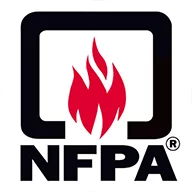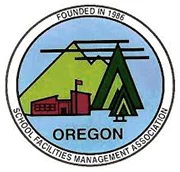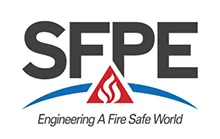Inspection
Repair
& Installation
Management
Consultation
Fire Alarm Systems Overview Q&A
PSI recently held a webinar focused on an overview of today's fire alarm systems. Attendees left with a greater understanding of the basics of fire alarm systems and how fire/life safety codes impact fire detection and alarm system requirements. If you weren't able to attend, you can still watch a recording of the Fire Alarm Systems Overview Webinar here.
Several great questions were asked during the presentation, and we wanted to provide the answers for everyone to reference. Please find the Fire Alarm Systems Overview questions and answers below.
At PSI, our factory-trained and NICET-certified technicians provide comprehensive fire and life safety services—monitoring, testing and inspecting, system maintenance, installations, and code compliance consultations—all under one agreement. Contact us today to schedule your free consultation.
Does elevator recall still need to be conducted monthly?
For each site, you're going to have your own requirements for elevators as far as maintenance. This is done by the elevator state inspector, not by the fire marshal. If there's any elevator functions like maintenance that you have to have your elevator technician for, that's going to be on their purview.
Elevator recall test being done monthly, that would be on either the building owner or the elevator state inspector. As far as the fire and life safety side with the fire marshal, an annual inspection is all that is necessary.
When you get a trouble call from your Central Station, why is it, most of the time it was a miscommunication?
You can have communication issues when it comes to phone lines failing, especially because phone lines are no longer being supported. So as phone lines continue to fail, your monitoring is seeing signals coming in, and they do a daily test every 24 hours. They want to make sure that your communicator and your fire panel are both reaching out to monitoring. So, when they see one of those signals miss, they reach out to you to let you know that there's a gap in coverage so that you're well protected.
If it's not a phone line issue, it could be a radio issue. And with radios again, you're going to have your fire panel sending a message to your radio, and then your radio sending a message to the Central Station. There are two different signals being received by Central Station, and if your radio fails to send its message, it could be due to bad reception, it could need a bonus antenna, or it might not be an appropriate fit for that network.
And then lastly, cellular. This is all going to be based on how your jurisdiction is as far as network coverage, what kind of building you have, if there's too much cement, or if it's too far underground. There are always ways to make it work, but it's trickier for some buildings than others.
The key there is the Central Station wants to make sure you are aware of when there are gaps in your coverage, so that you could have a plan in place to call 9 1 1 if there was an emergency during that one moment when the Central Station was not able to see your alarm. A lot of the times with those brief troubles that only delay the message, that message will get received by Central Station later. It's just not being received at that moment. So, it puts a delay on calling 9 1 1, essentially through the Central Station.
We have an OTIS elevator. Would an elevator tech still be required to be onsite to oversee the elevator’s annual inspection when PSI techs are onsite for the inspection?
In the past, when (PSI/FLS vendor) testing the features of the fire alarm system has routinely not required an elevator tech on site. That has since changed, partially because of the fire marshal's requirements, but also more importantly from the state elevator inspectors’ specific requirements.
The elevator log that's in your elevator machine room is required to be signed by both the elevator maintaining technician or the elevator company, and also the individual performing the fire life safety test. That means we both must be there on site. We both must see that both the fire alarm side of it functions the way it's supposed to, and the elevator portion of it functions the way it's supposed to. So, yes, on annual inspections, Otis would be required to be on-site at the same time as our PSI technicians doing the annual inspection, only for the elevator portion. This would mean all of the elevator lobby devices, machine room devices, and anything that could potentially be in the elevator shafts.
Will a fire watch be required for a commercial building during a scheduled power shutdown (4-5 days)? To be specific, it is a F-1 building
Fire watch is a touchy subject and it depends on the situation, but ultimately, Fire Watch can only be enforced by the AHJ and it can only be released by the AHJ. So, when it comes to, our recommendations, we can recommend fire watch, and when you have a power shutdown for multiple days, your system's backup power supply is not designed to last that long. It would be recommended that you either have some form of fire watch in place or that you would have a plan in place to call 911 if an incident ever happened on your site.
If you're going to have security or something of that nature, usually that counts for Fire Watch. But again, you're going to want to consult with your AHJ specifically on what they would like you to do during that four to five day shutdown.
If you disconnect a detector, should you put the system in test?
My recommendation would be to always put your system in test when you're doing anything with your fire alarm system. That being said, there are different levels of monitoring disables. This means if you call your Central Station and say, “Hey, I'm going to be disconnecting this device, can I bypass trouble signals in particular?” Because if you're pulling off a smoke head, for example, that’s going to send trouble to your fire panel. You're going to get notified by your central station, but you're not going to have 911 called.
So it's not going to be the end of the world if you get a phone call from Central Station. But if you call them and let them know, “Hey, I'm going to be doing this,” then they can disregard that signal for an X amount of time. And I think that's always the safe way to do it because you never know how a fire system might react when you do something. It could be general maintenance or not. Fire alarm systems are running 24/7 all year round. A lot of times when you do something to the system, you will wake up whatever dormant issues may lie present.
Does PSI handle ERRCS systems? (Emergency radio communication systems)
We do have electricians on staff who can maintain and monitor those systems. As far as inspections, we would reach out to your AHJ for the specific requirements associated, but we do work on those systems some, yes.
With Central Station, why is it that sometimes the fire trucks get dispatched to our site even when we have called to put our system and test?
This is a common misconception. When it comes to alarms being received by your central station. If you put the central station on bypass or call them and put your system in test, that will prevent that source from calling 911. That being said, you don't have control over all the people in your neighborhood and all the on-lookers who may see the alarms going off in your building. Even though that, you know, and everyone in your building knows you're doing a test, somebody outside might not know that and if they call 911, all firefighters, all ambulance, all emergency personnel are required by law to show up when they're called regardless of whether they know that you're testing or not. So even if you have the fire department right next door and you talk to them in person and said, “Hey, we're testing today,” they would still have to come.
When a system is initially installed, if another contractor does work on it, does that violate the system's warranty?
The thing about installs is you have a warranty for a specific designated amount of time for if the system fails for whatever reason. If you have somebody going in and fixing something, changing something, then you're going to have issues. But if you're having general maintenance and testing of your equipment, then it would still be covered under warranty.
We hope you find the recording of the Fire Alarm Systems Overview Webinar and the Q&A above helpful. At PSI, our NICET-certified technicians provide services considered by our customers to be best in class. Contact us today for a free consultation on your fire and life safety systems.


























